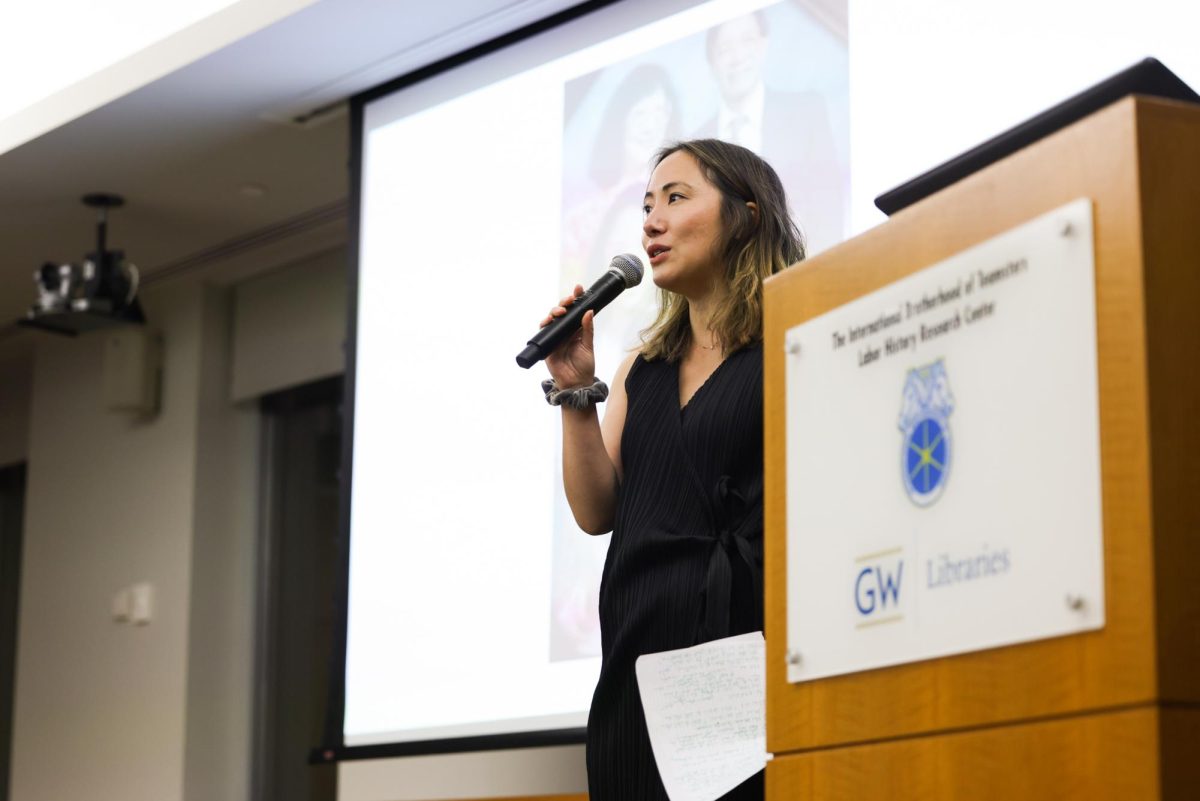A CVS stands today in place of the small art house theater where the first Reel Affirmations film festival took place 20 years ago.
The stigma of sexually permeated the festival’s inaugural year. Patrons of the Reel Affirmations film festival, a non-profit, all-volunteer celebration of LGBT film, were hesitant to add their names to the organization’s mailing list.
People went to the early screenings and tried not to be noticed, Larry Guillmette, chairman of the Film Festival Coordinating Committee and longtime volunteer, said.
This was before the passing of marriage equality laws, before allowing gays to serve openly in the military and even before GW had an LGBT student organization or resource center.
“We had just gone through a decade of AIDS devastating a community, killing thousands of people,” Guillmette said. “The main objective was to bring more positive and affirming images of folks to the community itself and to the greater community in general.”
While Guillmette describes the District as an accepting and LGBT-friendly city, he reminds students that not every small town radiates such a tolerant message.
“You don’t realize it’s not the same as it is here,” Guillmette said.
Guillmette, who attended GW from 1979 until 1983, described smaller audiences in the 90s, and as a consequence of the pre-Internet era, less access to films.
With an increase in technology bringing worldwide access to niche films, Guillmete says LGBT cinema became a more lucrative arena, leading to more recognized straight actors playing gay roles.
Despite Hollywood warming up to LGBT-themed movies, Reel Affirmations aims to showcase films that are not widely available to the public.
“We won’t screen something that’s been screened in Washington previously or that is commercially available,” Guillmette said. “You’ve got to see it with us.”
The 9-day festival sets up camp across the city, screening films at various locations including Lisner Auditorium, the Marvin Center, the SMPA building, the Atlas Performing Arts Center in the H Street corridor, West End Cinema, the FHI Globe Theater, U.S. Navy Memorial Theater, the Goethe-Institut and at the French and Israeli embassies.
The festival is organized by One in Ten, a D.C.-based producer of lesbian, gay, bisexual and transgender arts events.
In planning the festival, Guillmette has revisited his roots, working with Associate Director of Inclusion Initiatives and Director of the GW LGBT Resource Center, Timothy Kane.
“It’s been wonderful to be back on campus,” Guillmette said. “Never in a million years did I think I would be doing something like this.”
The festival also incorporates a community service aspect to its long list of events. This year, it has chosen to partner with university LGBT resource centers to raise money and donations to expand their media libraries.
Kane explained the film festival collaboration was the “perfect opportunity” for a partnership, as it coincided with National Coming Out Week.
“The GW LGBT Resource Center is doing all we can to create partnerships across campus with academic and administrative departments, as well as with community partners focused on celebrating and supporting the LGBT community,” Kane said.
The festival opened with a panel discussion, “Out of the Closet and Onto the Screen: A Generation of Queer Film” at Lisner Auditorium Wednesday evening. The panel featured prominent figures from behind the camera and on center stage in the LGBT community. The discussion focused on LGBT film’s history, from the first gay scene in 1895 to the glamorized and hyped stereotype it holds in Hollywood today.
“We’ve gone from gay bashing to like exotic sort of worship…it’s become this attractive, alluring thing. I think it’s a good thing. It might be a little exploitive, but it’s better than gay bashing,” Bradley Bell, the writer and actor in the new web series “Husbands” said.
“You can’t just confine people to those little boxes,” Ronnie Kroell of Bravo’s “Make Me a Supermodel” and June 2010 Playgirl Cover Model said, referring to not only sexuality but also to race and ethnicities. “We all share very vulnerable, beautiful human spirits.”
While showcasing over 85 films from more than 23 countries, the festival allows guests special offers, including a six-pack voucher deal, “because everyone wants a six-pack, or so I’m told,” said Guillmette.
The discount offers a six-pack of tickets for $60, a $12 dollar discount off the regular price admission of $12.





